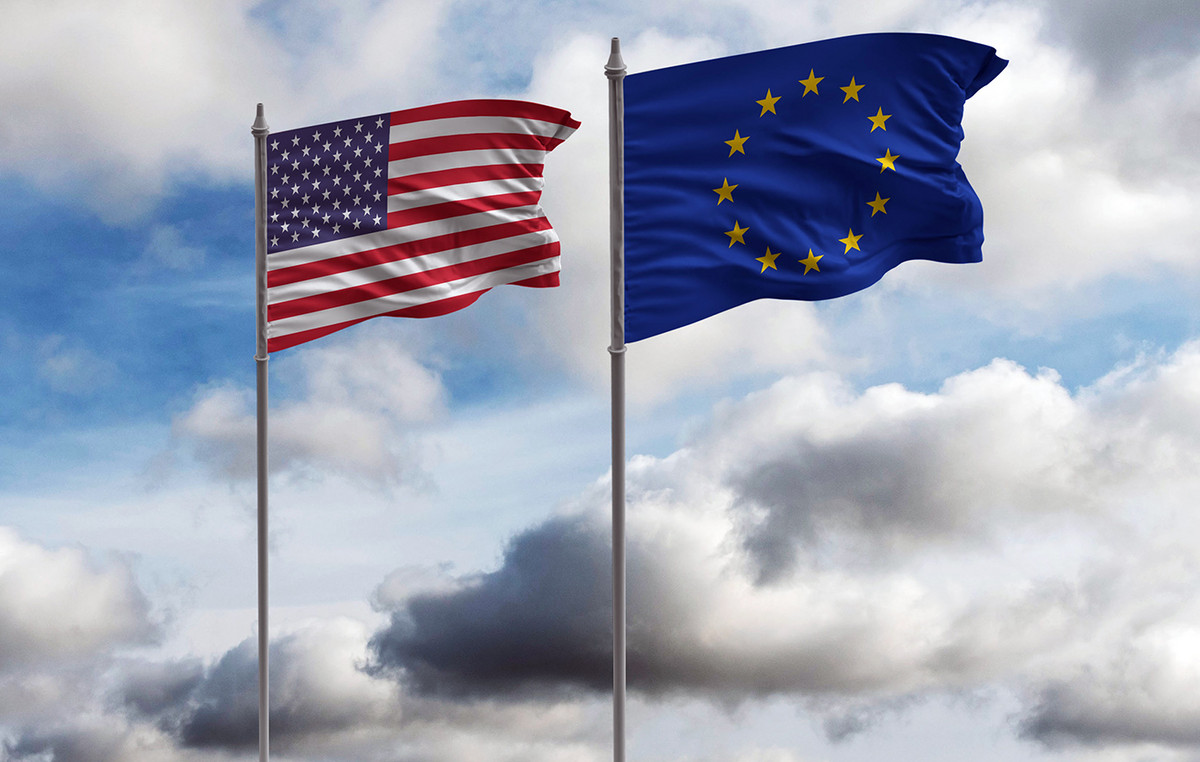The World Health Organization (WHO) was informed on 7 May of a confirmed case of smallpox in a person who had traveled from the UK to Nigeria. The individual developed a rash on the 29th of April and returned to the UK on the 4th of May. Suspicion of monkeypox immediately led the patient to isolation.
According to the WHO, on May 11, extensive contact tracing began to identify people who may have been exposed in health services, in the community and on international flights. These individuals are being followed up for 21 days from the date of the last exposure with the case, and none have reported compatible symptoms so far.
As the case was immediately isolated and contact tracing was carried out, the risk of transmission related to this case in the UK is minimal, according to the WHO. However, as the source of infection in Nigeria is not known, the risk of continued transmission in this country remains.
On May 14, the UK Health Safety Agency (UKHSA) confirmed two other cases of monkeypox in the country. The patients live together in the same house and are not linked to the previous confirmed case announced on May 7. According to the agency, the location and form of contagion remain under investigation.
One of the patients is receiving care at the specialist infectious disease unit at St Mary’s Hospital in London. The other is isolated and currently does not require hospital treatment.
“We have confirmed two new smallpox cases in England that are not linked to the case announced on 7 May. While investigations are ongoing to determine the source of infection, it is important to emphasize that it does not spread easily between people and requires close personal contact with an infected symptomatic person. The overall risk to the general public remains very low,” said Colin Brown, UKHSA Director of Clinical and Emerging Infections in a statement.
about the first case
On 7 May, the International Health Regulations (IHR) National Focal Point for the UK notified WHO of a confirmed case of smallpox in an individual who traveled from the UK to Nigeria from late April to early May and remained in Lagos and Delta states in Nigeria.
The patient developed a rash on 29 April and returned to the UK, arriving on 4 May. The same day, the case was presented to the hospital. Based on travel history and rash, monkeypox was suspected at an early stage and the case was isolated immediately, with proper use of personal protective equipment being ensured during hospitalization.
Monkeypox was laboratory confirmed by molecular diagnostics (RT-PCR) performed from vesicular swab on 6 May by the UK Health Safety Agency’s (UKHSA) Rare and Imported Pathogens Laboratory.
Epidemiology of the disease
Monkeypox (Monkeypox) is a disease transmitted from animals to humans (zoonosis) in the wild. Incidental human infections occur sporadically in forested parts of Central and West Africa.
The disease is caused by the monkeypox virus, which belongs to the orthopoxvirus family, and can be transmitted by contact and exposure to exhaled droplets. The incubation period for monkeypox is usually 6 to 13 days, but can range from 5 to 21 days.
The disease is often self-limiting with symptoms usually resolving spontaneously within 14 to 21 days. Symptoms can be mild or severe, and the lesions can be very itchy or painful.
The animal reservoir remains unknown, although it is likely to be among rodents. Contact with live and dead animals through hunting and consumption of game or bushmeat are known risk factors.
There are two groups of monkeypox virus, those from West Africa and those from the Congo Basin (Central Africa). Although monkeypox virus infection in West Africa sometimes leads to severe illness in some individuals, the illness is usually self-limiting.
The case fatality rate for the West African group has been documented to be around 1%, while for the Congo Basin it can be as high as 10%. Children are also at greater risk, and smallpox during pregnancy can lead to complications such as congenital smallpox or death of the child.
Milder cases of smallpox can go unnoticed and pose a risk of person-to-person transmission. There is likely to be little immunity to infection in those traveling and exposed, as the endemic disease is geographically limited to parts of West and Central Africa.
Although a vaccine has been approved for the prevention of smallpox, and the traditional smallpox vaccine also provides protection, these immunizers are not widely available and populations worldwide under the age of 40 or 50 no longer benefit from the protection offered by previous smallpox vaccination programs.
public health response
The UK health authorities created an incident management team to coordinate the identification and management of contacts. As of May 11, extensive contact tracing seeks to identify possible exposed individuals in the community, in the health service and on the international flight. So far, none have reported symptoms compatible with the disease.
All identified contacts have been evaluated and classified based on their exposure to the case and are being followed through surveillance for 21 days after their last exposure to the case. Post-exposure prophylaxis with vaccination is being offered to high-risk contacts.
Nigerian authorities were informed about this case and travel history in Nigeria on May 7. The patient did not report contact with anyone with a known rash or monkeypox disease in Nigeria. Details of travel and contacts within Nigeria were shared with the country’s authorities for follow-up.
Risk assessment
In the UK, there have been seven previously reported cases of monkeypox; all imports were related to a travel history to Nigeria. In 2021, there were also two cases of human smallpox imported from Nigeria reported by the United States.
As of September 2017, Nigeria continues to report smallpox cases. From September 2017 to April 30, 2022, a total of 558 suspected cases were reported in 32 states across the country. Of these, 241 were confirmed cases, with eight deaths recorded (case fatality rate: 3.3%).
From January 1 to April 30, 46 suspected cases were reported, of which 15 were confirmed in seven states – Adamawa (three cases), Lagos (three cases), Cross River (two cases), Federal Capital Territory (FCT) (two cases), Kano (two cases), Delta (two cases) and Imo (one case). No deaths were recorded in 2022.
In the recent case, the source of infection remains unknown and the risk of further transmission in Nigeria cannot be excluded, according to the WHO. Once monkeypox was suspected in the UK, authorities promptly initiated public health measures, including case isolation and contact tracing.
Imported cases of smallpox from one endemic country to another country have been documented on eight previous occasions. In this case, the confirmed patient has a history of travel from Delta State in Nigeria, where monkeypox is endemic.
WHO recommendations
WHO advises that any illness while traveling or returning from an endemic area should be reported to a healthcare professional, including information on all recent travel and immunization history.
Residents and travelers to endemic countries should avoid contact with sick animals (dead or alive) that may harbor monkeypox virus (rodents, marsupials, primates) and should avoid eating or handling wild game.
In addition, the WHO reinforces the importance of hand hygiene with soap and water, or alcohol-based disinfectant. Although a vaccine and a specific treatment were recently approved for smallpox, in 2019 and 2022 respectively, these countermeasures are still not widely available.
A monkeypox patient should be isolated and given supportive care during the infectious periods, from the initial signs to the rash of the disease.
Timely contact tracing, surveillance measures, and awareness of emerging imported diseases among healthcare workers are essential to preventing new secondary cases and effectively managing smallpox outbreaks.
WHO does not recommend any restrictions on travel and trade with Nigeria or the UK based on currently available information.
Source: CNN Brasil







